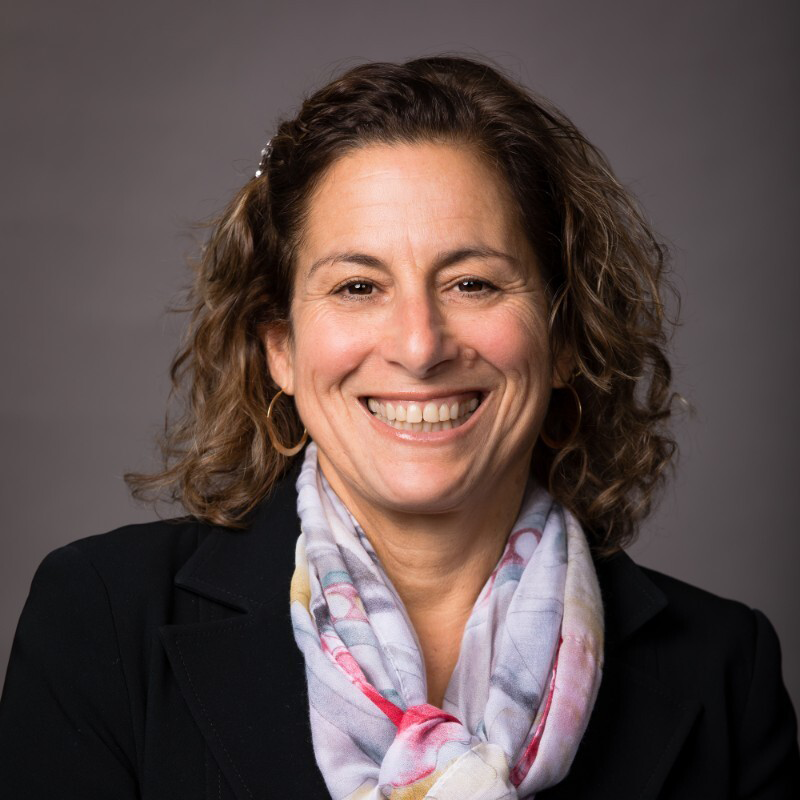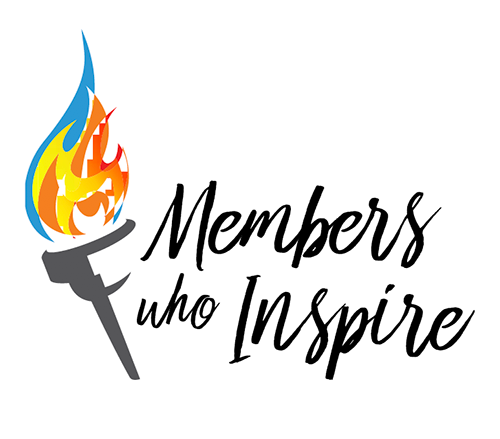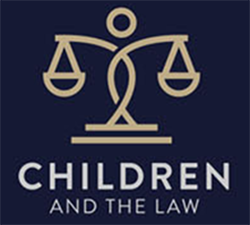Passion for Justice: Northwestern law prof fights for juvenile rights armed with research

Julie Biehl has been an ABA member since 2006.
Julie Biehl suspected that something wasn’t right.
Biehl has advocated for kids caught up in Illinois’ juvenile justice system for 37 years, becoming a leading voice in reform. She is currently the clinical professor at Northwestern University Pritzker School of Law and the director of its Bluhm Legal Clinic’s Children and Family Justice Center.
This work often starts with a suspicion—and little data to back it up—that policies in Illinois aren’t working the way they should, according to Biehl. That includes issues like expunging juvenile records, keeping kids out of the juvenile justice system, sending youth to adult prisons, getting kids mental health services, providing lawyers to youth at parole revocation hearings and discharging kids from juvenile correctional facilities. By working the long game and conducting necessary research, her efforts have resulted in major practice changes and state laws being rewritten regarding juvenile expungement, parole and reentry.
“I mean, who amongst us as an adolescent doesn’t make a mistake?” asks Biehl, an ABA member since 2006. “I tell my students, ‘Treat people the way you would want your child or your family member to be treated.’”
Biehl is known as a straight shooter, whose presence fills a room. “She’s a tiny woman, maybe 5’1”, but she is so fiery and so full of passion and just cares,” says Garien Gatewood, deputy mayor for community safety for the city of Chicago.
“She is extremely astute at identifying issues that need to be addressed,” says Paula Wolff, policy advisor at the Illinois Justice Project. “She’s got a great sense of humor as well as a great sense of outrage, which are two things that are good to combine.”
The opportunity to both represent clients and conduct policy work enables her effective efforts, says Biehl, a member of the ABA Section of Legal Education and Admissions to the Bar Section. “It is a great way to practice law and teach students because you see the issues both from the individual perspective and the mega-mega perspective,” she adds. “Each one feeds the other.”
Natural advocate
Biehl grew up in New Rochelle, New York, and her parents—Frederick, an attorney in New York, and Kathy, a social worker in the Stamford, Connecticut, public schools— were socially conscious. “I was brought up in a house where my father did volunteer work in Harlem, and my parents were part of the Poor People’s March on Washington, D.C.,” she says.

As an undergraduate at Duke University in the late ’70s, she became involved in political work. “We went to Greensboro and protested the Ku Klux Klan,” she says. “We went to D.C. and protested nuclear energy.”
She realized she’s a natural advocate and law would be the best place to utilize those skills. She headed to Northwestern Law School, working at the Legal Assistance Foundation of Metropolitan Chicago (now called Legal Aid Chicago), which provides free civil legal services for people living in poverty. She assumed she’d slide into a full-time position there. “But it was during the Reagan years,” she says, “and there were cutbacks. So here I was, a third-year law student without a job.”
Never interested in working at a law firm, she applied to every public interest job available in Chicago—with no luck.
“I gave in,” she says. She joined D’Ancona & Pflaum, but her heart wasn’t in commercial law. Just 18 months later, she moved to the public guardian’s office, representing juvenile wards of the state. Next, she returned to the Legal Assistance Foundation as the staff attorney on its homeless advocacy project. Several jobs in the juvenile justice space followed, including serving as director of the Cook County Juvenile Court Clinic.
In June 2003, she joined Northwestern Law’s faculty, and five years later, became the policy director of CFJC before moving up its ranks.
‘Let’s collect that data’
Biehl’s accomplishment in changing the state’s expungement process in 2017 exemplifies her process of sensing a problem, conducting research, then holding conversations with high-level people to affect change.
On paper, Illinois’ expungement law had seemed pretty good, says IJP’s Gatewood. Yet Biehl wondered why so few kids were expunging their record.
“She genuinely understood, that yes, the systems in place, and people think they’re doing a really good job,” adds Gatewood. “But it was Julie sitting down and saying, ‘No, we actually have massive problems here.’”
However, no statewide data proved it. “For a lot of people, that would have been the end of the road,” says colleague Alison Flaum, Northwestern Law professor and CFJC legal director. “But Julie said, ‘Well, let’s collect that data.’”
Biehl, who also serves as a commissioner for the Illinois Juvenile Justice Commission, organized law students to reach out to the state’s 102 counties. “They were actually able to reach maybe like 99,” Flaum says. “That right there was extraordinary in and of itself.”
In 2016, the report Burdened for Life: The Myth of Juvenile Records Confidentiality and Expungement in Illinois included that student research along with information that Illinois Juvenile Justice Commission learned by observing parole revocation hearings.

It showed that the state system was underutilized, with only three expungements per 1,000 juvenile arrests. It also revealed flaws such as restrictive criteria before the expungement or sealing process could start, including long waiting periods and minimum age requirements.
“Not a lot of teenagers were writing that down in their datebook or had the wherewithal to figure out how exactly they were supposed to come back into court and do that,” Flaum says.
After years of work by Biehl and her collaborators, state lawmakers passed the Youth Opportunity and Fairness Act, which, among other things, automatically expunges some charges and sets court dates for the rest.
“It’s a perfect example of this big picture idea, digging in deep down in the details to fix the system, and going beyond just transforming the statute but really getting behind the scenes in terms of the process,” Flaum says.
However, Biehl emphasizes she does not lobby. “We do a lot of work as subject matter experts. We write reports,” she says. “That’s the luxury of working in a law school.”
Changing laws regarding juvenile parole and reentry followed a similar pattern. Biehl and colleagues noticed that kids lingered in juvenile prison longer than intended. How they were revoked off parole was also inconsistent with best practices.
Again, there was little data. And again, she led the charge to collect and analyze it.
That work helped lead to three juvenile prisons closing, and the number of kids in youth state prison dropping from a peak of 2,174 in 1999 to 145 in 2022.
“I thought about it as closing the front door, the back door and the revolving door of prison,” she says.
It is work that her peers praise. “She’s changed the entire trajectory of how we look at youth prisons here in Illinois,” says Gatewood, who estimates he’s collaborated with Biehl on about 25 projects.
“She is very comfortable partnering with people and figuring out how to create coalitions that can effectively bring those issues forward, educate the public, educate policymakers, and then actually figure out what needs to happen to change the systems,” Wolff says.
‘Doesn’t expect anything back’
Biehl is married to Bruce Boyer, the co-director of Loyola University Chicago’s School of Law’s Civitas ChildLaw Center. They have three grown sons, including Jacob Boyer, who serves as deputy general counsel of the commonwealth of Pennsylvania. The couple lives in Chicago and has two grandchildren.
“Julie is a mom first and foremost,” Gatewood says. “This is why she’s like, ‘I don’t want you doing these things to kids.’ Not only has she shepherded an entire generation of young advocates throughout the city of Chicago, her biggest accomplishment has been how many kids she’s helped throughout the state of Illinois.”
Biehl downplays the awards she and the clinic she directs have earned, including the ABA’s Livingston Hall Juvenile Justice Award and a MacArthur Award for Creative and Effective Institutions, both in 2013. “These are coalitions that work to make these huge changes,” she says. “It is not just me in any way, shape, or form.”
True to her character, Biehl won’t name her proudest achievements. Instead, she deflects and points to a client: Diego Garcia-Cordero. “I’m really proud of him.”
Early in the pandemic Biehl shifted her focus to clemency cases for kids in prison. One client was Garcia-Cordero, who at 17 was tried as an adult for aggravated battery and discharge of a firearm and sentenced to 12 years. After working with Biehl and a law student, he was granted clemency in 2021 after serving four years.
Garcia-Cordero went back home to Palatine, Illinois, and Biehl helped him apply to College of DuPage, where he received as associate degree in business in December. Biehl is now encouraging him to apply to universities while he works as a real estate agent, he says.
“I love how she helps people, and she doesn’t expect anything back,” Garcia-Cordero says. “The best way I could say thank you to her is to do what she intended—for me to be successful and to help others do the right thing.”
Now, however, she’s transitioning back to focusing on policy work.
“She’s currently on this crusade to ensure that the state is funding public defenders across the state,” says Cook County Public Defender Sharone Mitchell Jr. “She’s completed one of the most complete datasets the state has seen when it comes to budget comparisons between the funding for public defenders as compared to prosecutors.”
Biehl is clear on how she hopes others will build on her work. “Close all juvenile detention centers and prisons, as children should be rehabilitated, supported, mentored and not incarcerated in prison cells,” she says. “Invest in communities, schools, counseling and public defenders instead of the police and prison industrial complex.”
Her goal is to teach students to arm themselves with research to fight policy battles.
“I teach passion; passion for justice,” she says. “I want them to be critical thinkers. And I want them to treat people with respect and dignity, the way that they would want to be treated.”
Members Who Inspire is an ABA Journal series profiling exceptional ABA members. If you know members who do unique and important work, you can nominate them for this series by emailing [email protected]. This story is also part of the ABA Journal’s Children & the Law series exploring children’s law and juvenile justice.



